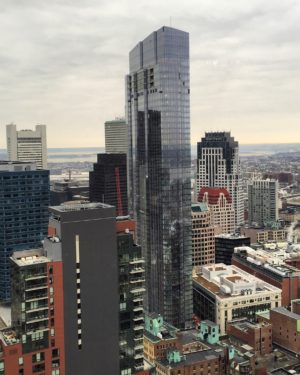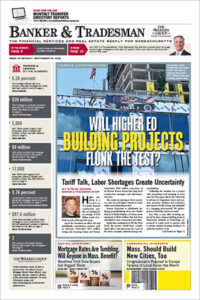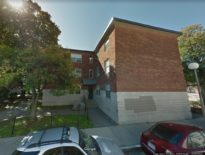A 6 percent tax on real estate transactions of $2 million or more would subsidize affordable housing production under a new proposal by two Boston city councilors.
The tax would be equally split between buyers and sellers. The measure also calls for a fee of up to 25 percent on properties that are resold within two years, to be paid by the seller.
“We settled on [$2 million] because we felt it was high enough that we were getting to the investor and commercial class of property owners,” said Councilor Lydia Edwards, co-sponsor of the bill along with Kim Janey. “We want to make sure families can get wealth from the homes. This is for a special class of the market who we feel are speculative and come here just to make money. They’re not folks dedicated to housing Bostonians.”
Owner-occupied properties and transfers between family members would be exempt. Proceeds would go to the city’s Neighborhood Housing Trust Fund, which subsidizes affordable housing development. Edwards said the measure could generate from $175 million to $350 million annually.
A sunset clause requiring the fees to be renewed annually could be included, providing flexibility if there’s a downturn in the real estate market, Edwards said.
If approved by the city council, the Edwards proposal would need the signature of Mayor Marty Walsh and approval of a home rule petition by the state Legislature.
A study released in September by the Washington, D.C.-based Institute for Policy Studies recommended a transfer tax on transactions over $2.5 million. The report cited research indicating that owners of 64 percent of 1,805 housing units in newer luxury developments, such as Millennium Boston and Mandarin Oriental, do not claim the residential exemption on property taxes, an indication of absentee ownership.
Walsh expressed skepticism about the effectiveness of transfer taxes after the report’s release. The administration has set aggressive goals for housing generation as a way to bring housing costs under control, seeking to encourage development of 69,000 residential units by 2030. The city has already approved more than 27,000 housing units since Walsh took office in 2014. The administration also has increased fees on developers who don’t include on-site affordable units, with the money used to subsidize other projects with income-restricted units and prices.









